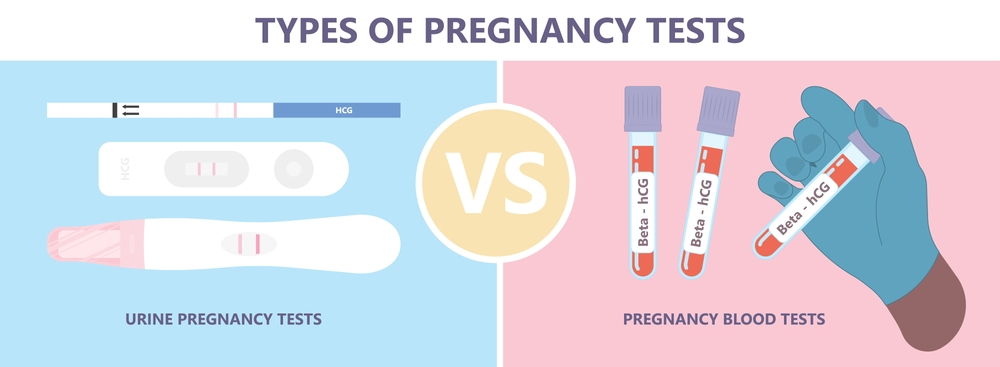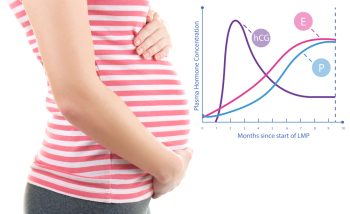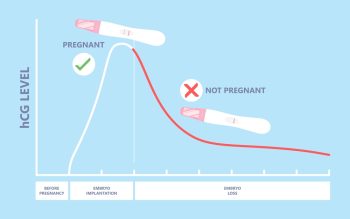Pregnancy, an exciting and joyous time for many women, can sometimes come with its own set of complications.
One such complication is a non-viable pregnancy, which occurs when a fertilized egg fails to develop normally, leading to a miscarriage. What are non-viable pregnancy hCG levels?
If you suspect that you may be experiencing a non-viable pregnancy, one indicator to look out for is your hCG levels.
In this blog post, we’ll break down what hCG levels are, what they mean for non-viable pregnancies, and what steps you can take to cope and move forward.
What are hCG levels?
Human chorionic gonadotropin (hCG) is a hormone produced during pregnancy, primarily by the cells that form the placenta.
Its main role is to promote the production of other hormones that support the development of a growing fetus.
HCG levels can be measured through a blood or urine test, and their levels rise rapidly during early pregnancy.

What are “normal” hCG levels?
There’s no one “normal” hCG level that applies to all pregnant women, as levels can vary widely depending on factors such as age, medical history, and the length of the pregnancy.
However, many doctors and sources use a range of 25-100 mIU/ml as a typical hCG level for women 4-5 weeks pregnant.
As the pregnancy progresses, hCG levels typically continue to double every 48-72 hours, peaking at 8-11 weeks and then gradually declining for the rest of the pregnancy.

What are non-viable pregnancy hCG levels?
In a non-viable pregnancy, hCG levels may fail to rise as expected or may begin to decline. This can be an indicator that the pregnancy is not developing as it should and may result in a miscarriage.

However, it’s important to note that hCG levels alone are not a definitive diagnosis for a non-viable pregnancy, and additional testing such as an ultrasound may be needed for confirmation.
Moving forward: coping with non-viable pregnancy
A non-viable pregnancy can be a heartbreaking experience, and it’s important to take care of yourself emotionally and physically as you cope and move forward.
Some tips for self-care and healing include talking to a trusted friend or counselor, allowing yourself time to grieve, and taking steps to stay healthy and nourished.
Remember that you are not alone in your experience of non-viable pregnancy; many women go through it and come out stronger on the other side.

A non-viable pregnancy can be a difficult experience, but understanding hCG levels is one way to gain clarity and a sense of control during a confusing time.
If you suspect that you may be experiencing a non-viable pregnancy, it’s important to talk to your doctor and take steps to care for yourself.
Remember that you are not alone, and there is support and healing available as you face this challenge.


